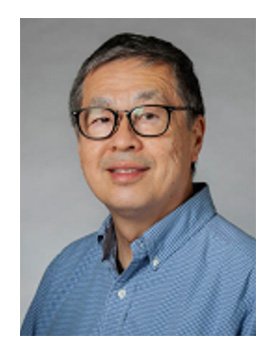
Probing the Landscape of Metal-organic Frameworks using Solid-State NMR Spectroscopy
Prof. Yining Huang
The University of Western Ontario, Canada

Biography:
Dr. Yining Huang obtained his B.Sc and M.Sc from Peking University and earned his Ph.D. from McGill University. After an NSERC post-doctoral fellowship at the University of British Columbia, he started his independent academic career at Laurentian University as an Assistant Professor. He is currently full Professor in the Department of Chemistry, The University of Western Ontario. Dr. Huang has published more than 270 peer-reviewed papers. He has won several awards, and the examples include Canada Research Chair; Premier's Research Excellence Award; Florence Bucke Award and 2025 Gerhard Herzberg Award. Dr. Huang was the Chair of the Department of Chemistry at Western for eight years from 2014-2022. His current research interest focuses on characterization of inorganic materials (including layered materials, zeolites and related molecular sieves, mesoporous materials and metal-organic frameworks) by solid-state NMR and vibrational spectroscopy.
Abstract:
Metal-organic frameworks (MOFs) represent the largest class of porous materials, offering unique properties such as modularity, tunable pore sizes and functionality, high surface area, and permanent porosity. MOFs have numerous applications, including gas storage and adsorption, sensing, catalysis, water harvesting and drug delivery. Despite their widespread utility, many fundamental questions regarding structure–property relationships remain. Solid-state NMR (SSNMR) is an important tool for characterization. MOFs incorporate elements from across the periodic table, including numerous challenging quadrupolar nuclei. We have pushed the boundaries of both high-resolution and wideline SSNMR of quadrupolar nuclei for MOF characterization.
In this presentation, Dr. Yining Huang will illustrate how SSNMR reveals distinctive atomic-level structural information on MOFs and how we leverage new magnet and probe technologies to push the boundaries of MOF characterization. Specifically, I will talk about our recent work on: (1) directly probing metal center environments by interrogating 67Zn, 91Zr, 63/65Cu, 209Bi via their SSNMR spectra. (2) examining local structures around organic linkers along with framework halides by 17O, 35Cl and 127I SSNMR; (3) monitoring the behavior of adsorbed guest molecules. Furthermore, SSNMR is a powerful guiding tool in MOF chemistry, and illustrative examples will be presented if time permits.
报告时间:2025年7月16日9:00
报告地点:五室三楼大会议室